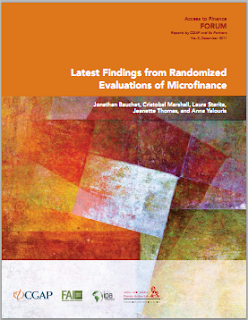Apparently not in Sri Lanka.
The authors conduct a randomized experiment among women in urban Sri Lanka to measure the impact of the most commonly used business training course in developing countries, the Start-and-Improve Your Business program. They work with two representative groups of women: a random sample of women operating subsistence enterprises and a random sample of women who are out of the labor force but interested in starting a business. They track the impacts of two treatments -- training only and training plus a cash grant -- over two years with four follow-up surveys and find that the short and medium-term impacts differ. For women already in business, training alone leads to some changes in business practices but has no impact on business profits, sales or capital stock. In contrast, the combination of training and a grant leads to large and significant improvements in business profitability in the first eight months, but this impact dissipates in the second year. For women interested in starting enterprises, business training speeds up entry but leads to no increase in net business ownership by the final survey round.Suresh de Mel, David McKenzie, and Christopher Woodruff , "Business training and female enterprise start-up, growth, and dynamics: experimental evidence from Sri Lanka" (HT: @timothyogden)


